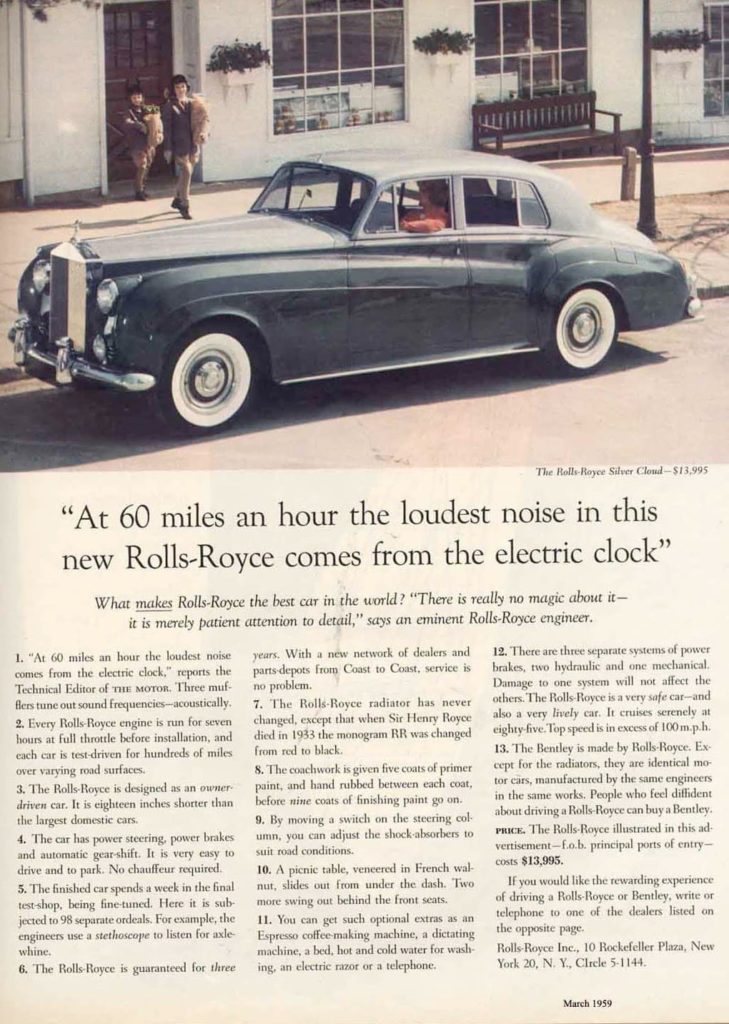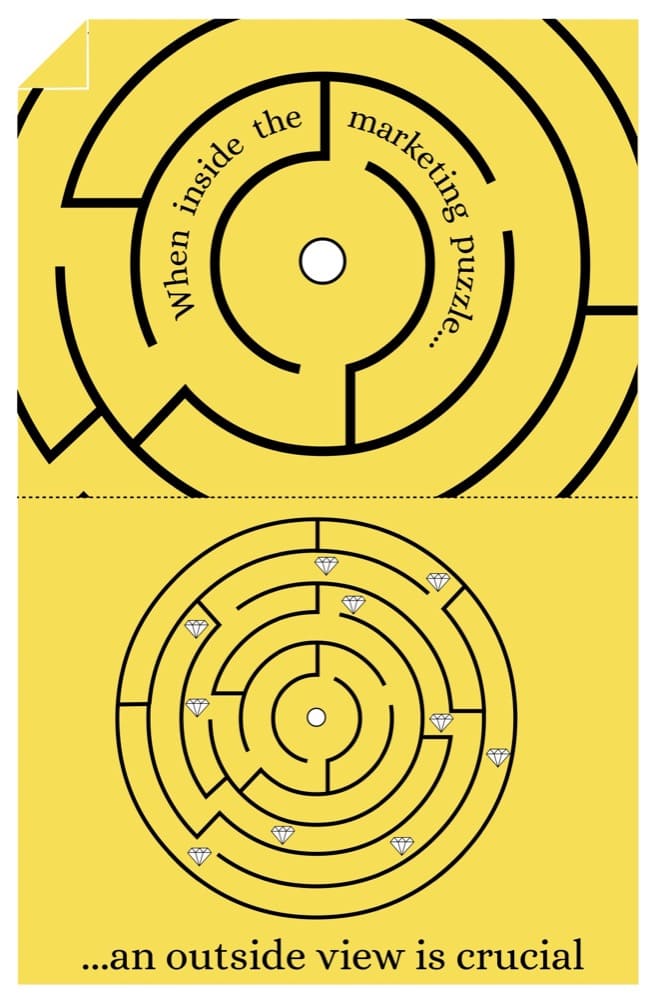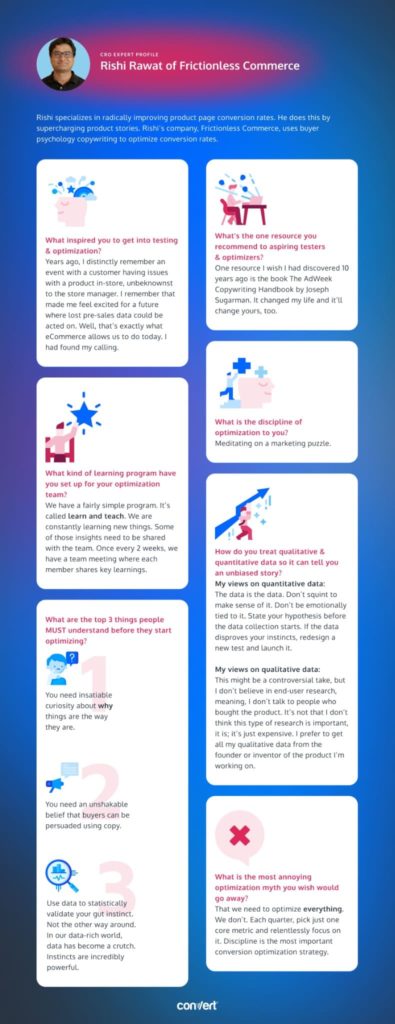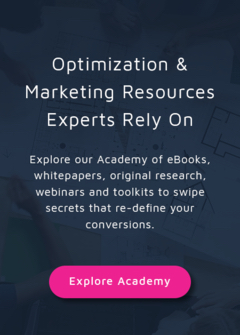Testing Mind Map Series: How to Think Like a CRO Pro (Part 3)
Interview with Rishi Rawat of Frictionless Commerce
The key to an effective CRO strategy lies not only with setting up A/B tests correctly or choosing the right elements to test on but also with having the right mindset.
The Testing Mind Map Series features interviews with some of today’s most knowledgeable experts on optimization strategies! It’s packed with useful tips and actionable strategies you won’t find anywhere else on the web.
In this installment of the series, we’re chatting with Rishi Rawat of Frictionless Commerce.
Rishi, tell us about yourself. What inspired you to get into testing & optimization?
I can share my earliest memory. I was 16 years old, standing at the entrance of a retail store. From my vantage point, to the right I saw a customer struggling with a piece of merchandise. Looking to the left, I could see the store owner sitting at the cash register.
This shopper must have been experiencing internal conflict because he was inspecting the object closely. The customer then lifted the object and started walking away, only to stop after a couple of steps, turn around, walk back, and return the item to the shelf. He then stared at it some more before giving up and leaving.
I remembered thinking: at the end of the day this store owner is going to tally up the cash register and conclude if it was a good day, or not. He would be completely oblivious of the struggle I had just witnessed. Had he known he may would have walked up and addressed the questions brewing in the customer’s mind.
This was long before eCommerce became a viable thing. I just remember feeling really excited at a future where such lost pre-sales data could be acted on. Well, that’s exactly what eCommerce allows us to do today.
I had found my calling.
How many years have you been optimizing for? What’s the one resource you recommend to aspiring testers & optimizers?
I’ve been thinking about and experimenting with the awesome mystery of online buyer psychology for the last 13 years. Spent many years just wandering. One resource I wish I had discovered 10 years ago is the book: The AdWeek Copywriting Handbook by Joseph Sugarman. It changed my life and it’ll change yours, too.
Answer in 5 words or less: What is the discipline of optimization to you?
Meditating on a marketing puzzle.
What are the top 3 things people MUST understand before they start optimizing?
1: You need insatiable curiosity about why things are the way they are. I really admire Lorenzo Carreri for this quality.
2: You need an unshakable belief that buyers can be persuaded using copy.
3: Use data to statistically validate your gut instinct. Not the other way around. In our data-rich world, data has become a crutch. Instincts are incredibly powerful. No amount of data could have ever led David Ogilvy to this beautiful ad concept:
How do you treat qualitative & quantitative data so it can tell you an unbiased story?
My views on quantitative data: The data is the data. Don’t squint to make sense of it. Don’t be emotionally tied to it. State your hypothesis before the data collection starts. If the data disproves your instincts, redesign a new test and launch it. The data is the data. Respect it.
My views on qualitative data: We have a controversial take on this topic. We don’t believe in end user research, meaning, I don’t talk to people who bought the product. It’s not that I don’t think this type of research is important, it is; it’s just expensive. I prefer to get all my qualitative data from the founder or inventor of the product I’m working on.
Where the end buyer’s experience is simply a snapshot of the one purchase that was made in that one moment, the inventor has context about the whole journey. I want to get my quantitative ‘feel’ from the founder.
The founder/inventor has so much institutional knowledge it’ll make your head spin. It’s just that they’ve been in the ‘middle’ so long they don’t know where to start. This is where the question-asking skills of the optimizer come into play. The optimizer helps the creator with the outside view:
I place a lot of value on this type of qualitative data.
What kind of learning program have you set up for your optimization team? And why did you take this specific approach?
We have a fairly simple program. It’s called learn and teach. As work is being done we are constantly learning new things. Some of those insights need to be shared with the team. Once every 2 weeks we have a team meeting where each member shares key learnings from their own work lives.
What is the most annoying optimization myth you wish would go away?
That we need to optimize everything. We don’t. Each quarter, pick just one core metric and relentlessly focus on it. Discipline is the most important conversion optimization strategy.
Download a copy of the infographic above and put it in a swipe file for later use when inspiration becomes hard to find!
Hopefully, our interview with Rishi will help guide your conversion strategy in the right direction! What advice resonated most with you?
Be sure to stay tuned for our next interview with a CRO expert who takes us through even more advanced strategies! And if you haven’t already, check out our interviews with Gursimran Gujral of OptiPhoenix, Haley Carpenter of Speero, Sina Fak of ConversionAdvocates, and Eden Bidani of Green Light Copy!
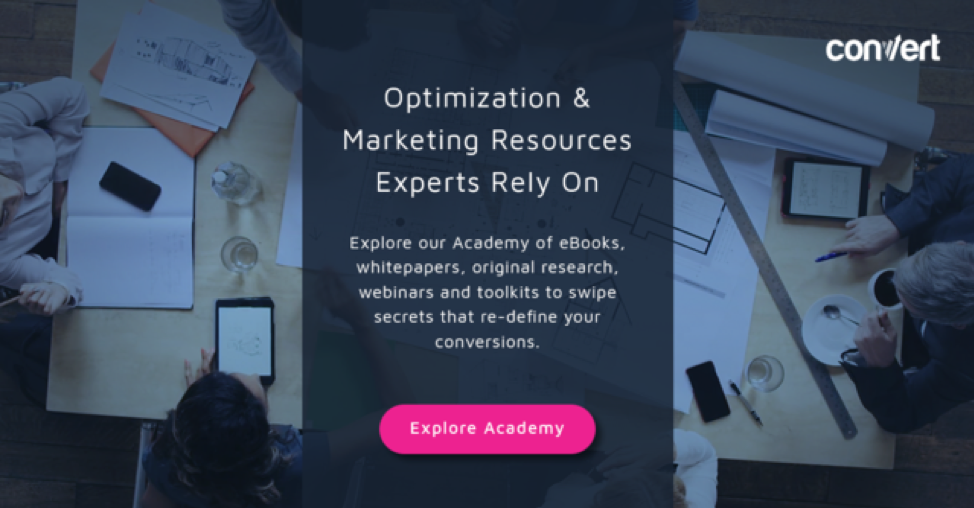
Written By
Rishi Rawat

Edited By
Carmen Apostu

